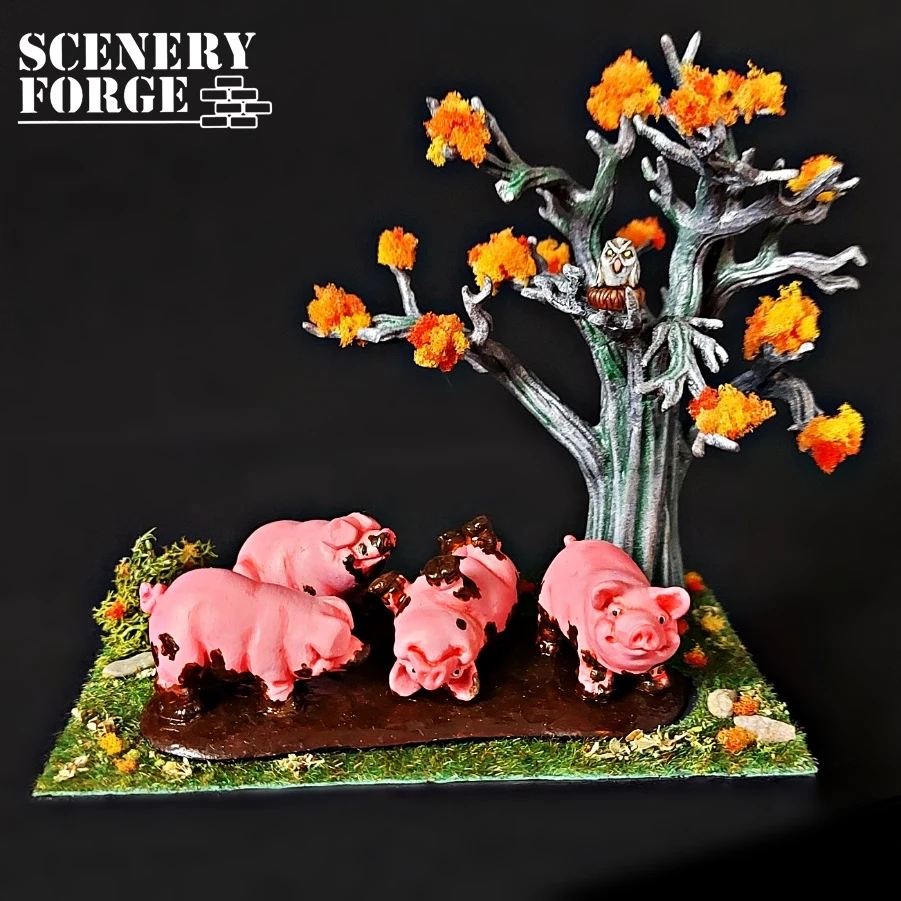Chubby Pigs: The Adorable, Fascinating World Of Pot-Bellied Swine
Chubby pigs have captured the hearts of animal lovers worldwide with their unique charm and playful personalities. These delightful creatures, often referred to as pot-bellied pigs, are not just farm animals but have become popular as pets in many households. If you're intrigued by chubby pigs and want to learn more about them, this article dives deep into their world, offering fascinating insights and practical advice.
From their origins in Southeast Asia to their rise as beloved companions, chubby pigs have carved out a special place in both rural and urban environments. Their intelligence, loyalty, and quirky behaviors make them stand out among domesticated animals. Understanding these animals is essential for anyone considering bringing one into their home or simply appreciating their role in agriculture.
This comprehensive guide explores everything you need to know about chubby pigs, from their biology and behavior to their care requirements and environmental needs. Whether you're a prospective owner or simply curious about these adorable creatures, this article will provide valuable information backed by scientific research and expert insights.
Read also:The Ultimate Guide To Choosing The Perfect House Cat Tree For Your Furry Friend
Table of Contents
- Introduction to Chubby Pigs
- Biology and Characteristics
- Historical Background
- Behavioral Patterns
- Care and Maintenance
- Dietary Needs
- Health Considerations
- Adoption and Ownership
- Ideal Environment
- Frequently Asked Questions
Introduction to Chubby Pigs
Chubby pigs, scientifically known as Sus scrofa domesticus, are a breed of domestic pig originating from Vietnam and other parts of Southeast Asia. These small, pot-bellied animals have gained popularity as pets due to their manageable size and affectionate nature. Despite their reputation as companion animals, chubby pigs still retain many of the traits of their wild ancestors, making them fascinating creatures to study and care for.
Why Are Chubby Pigs So Popular?
Their popularity stems from several factors:
- Compact size, making them suitable for indoor living
- Highly intelligent, capable of learning commands and tricks
- Affectionate and loyal, forming strong bonds with their owners
- Low maintenance compared to other large livestock
However, owning a chubby pig requires commitment, as they have specific dietary, social, and environmental needs that must be met to ensure their well-being.
Biology and Characteristics
Chubby pigs possess distinct physical and biological traits that set them apart from other pig breeds. Understanding these characteristics is crucial for their proper care and management.
Physical Features
Chubby pigs are easily recognizable by their:
- Small, compact body structure
- Distinctive pot belly
- Short, stubby legs
- Straight, short tails
Adult chubby pigs typically weigh between 100 and 150 pounds, though some may grow larger depending on genetics and diet. Their coat color varies, with common shades including black, white, and combinations thereof.
Read also:Stephanie Hsu Debunking Misinformation And Focusing On Her Remarkable Career
Historical Background
The history of chubby pigs dates back thousands of years to the jungles of Southeast Asia, where they were first domesticated. Originally bred for meat, their compact size and hardy nature made them ideal for rural farming communities. In the late 20th century, chubby pigs were introduced to Western countries as exotic pets, sparking a global trend.
Evolution of Chubby Pigs as Pets
By the 1980s, chubby pigs had become a symbol of luxury pet ownership, with celebrities and affluent families adopting them as status symbols. This trend led to increased awareness and interest in their care and welfare, paving the way for improved breeding practices and educational resources.
Behavioral Patterns
Chubby pigs exhibit a wide range of behaviors that reflect their intelligence and social nature. Understanding these patterns is essential for building a harmonious relationship with your pet.
Key Behavioral Traits
- Social: Chubby pigs thrive on interaction and companionship
- Curious: They are naturally inquisitive and enjoy exploring their surroundings
- Playful: Engaging in games and activities keeps them mentally stimulated
Training and positive reinforcement are effective tools for managing undesirable behaviors and encouraging good habits.
Care and Maintenance
Proper care is vital for the health and happiness of chubby pigs. This includes regular grooming, exercise, and veterinary check-ups.
Grooming Tips
While chubby pigs do not require frequent bathing, regular brushing helps maintain their coat and skin health. Additionally, trimming their hooves and monitoring their dental hygiene is important for preventing infections and discomfort.
Dietary Needs
A balanced diet is crucial for the well-being of chubby pigs. Their diet should consist of high-quality pig feed supplemented with fresh fruits and vegetables. Avoid feeding them human food, especially items high in sugar or fat, as this can lead to obesity and other health issues.
Recommended Diet Plan
- Pelleted pig feed
- Leafy greens
- Carrots and apples in moderation
Consulting a veterinarian for dietary advice tailored to your pig's specific needs is highly recommended.
Health Considerations
Chubby pigs are generally healthy animals, but they are prone to certain conditions such as arthritis, obesity, and respiratory issues. Regular veterinary care, including vaccinations and parasite control, is essential for preventing and addressing these concerns.
Signs of Illness
- Loss of appetite
- Lethargy or unusual behavior
- Swollen joints or difficulty walking
Early detection and treatment are key to ensuring a long, healthy life for your chubby pig.
Adoption and Ownership
Adopting a chubby pig is a rewarding experience but comes with responsibilities. Prospective owners should carefully consider their lifestyle, living arrangements, and financial capabilities before committing to this lifelong relationship.
Things to Consider Before Adoption
- Space requirements: Chubby pigs need adequate room to roam and play
- Time commitment: They require daily attention and care
- Legal regulations: Some areas have restrictions on owning pigs as pets
Researching reputable breeders or rescue organizations is the best way to find a healthy, well-socialized chubby pig.
Ideal Environment
Creating a suitable environment for your chubby pig is essential for their comfort and safety. This includes providing a clean, spacious living area with access to outdoor space for exercise and exploration.
Essential Elements of a Pig-Friendly Environment
- Adequate shelter from weather extremes
- Soft bedding materials
- Toys and enrichment items to stimulate their minds
Ensuring your pig has a safe and enriching environment will enhance their quality of life and strengthen your bond.
Frequently Asked Questions
Can Chubby Pigs Live Indoors?
Yes, chubby pigs can live indoors, provided they have access to outdoor areas for exercise and bathroom breaks. Proper training and housebreaking are essential for successful indoor living.
How Long Do Chubby Pigs Live?
With proper care, chubby pigs can live up to 15-20 years, making them a long-term commitment for their owners.
Are Chubby Pigs Aggressive?
Chubby pigs are generally gentle and friendly, but they can become territorial or defensive if they feel threatened. Proper socialization and training can help prevent aggressive behavior.
Conclusion
Chubby pigs are remarkable animals that bring joy and companionship to countless households worldwide. By understanding their biology, behavior, and care requirements, you can ensure a fulfilling and harmonious relationship with your pet. Whether you're considering adopting a chubby pig or simply learning more about them, this guide provides the knowledge and resources you need to make informed decisions.
We invite you to share your experiences and questions in the comments below. Additionally, explore our other articles on animal care and welfare for more insightful content. Together, let's create a world where all animals, including chubby pigs, receive the love and respect they deserve.


